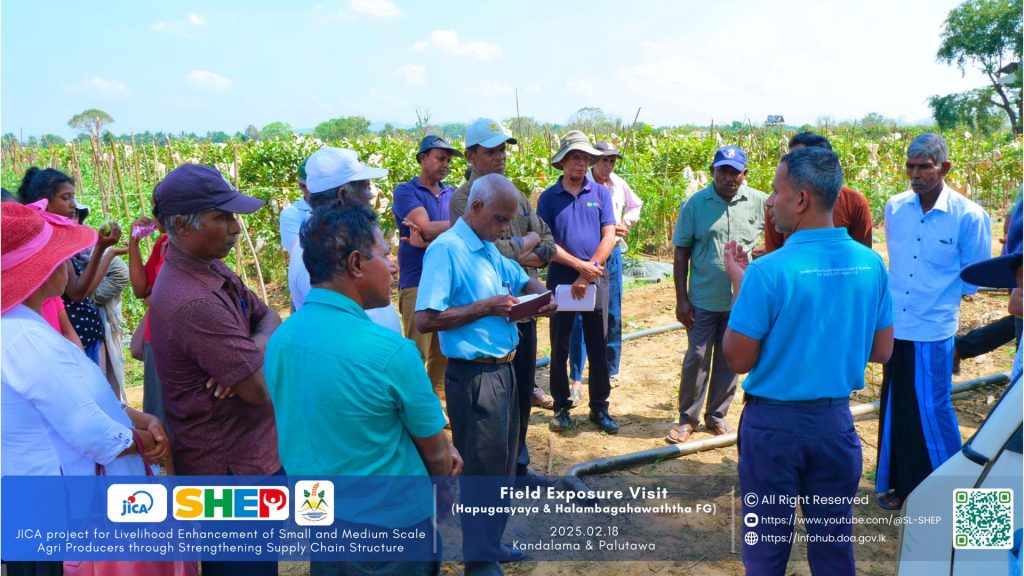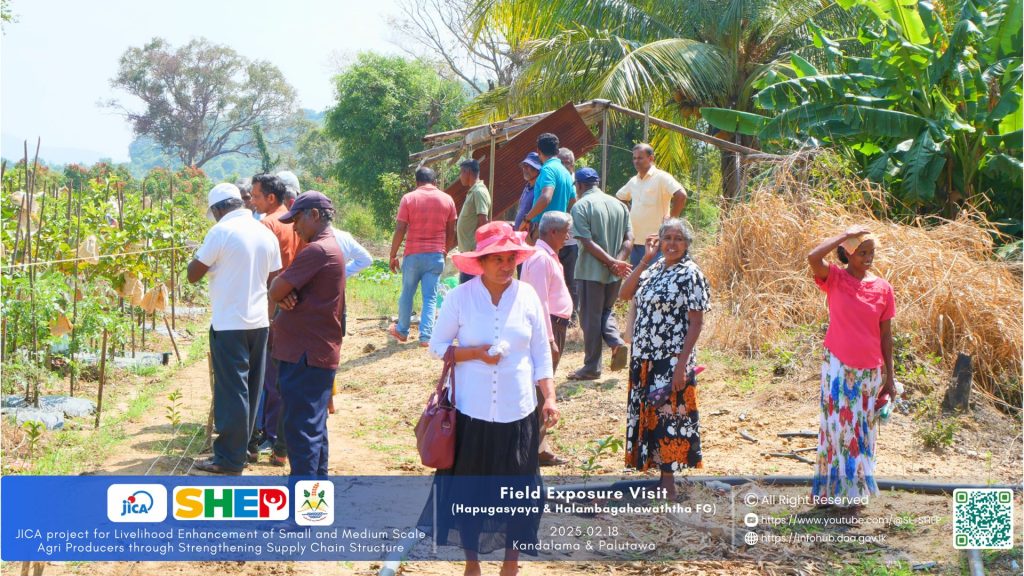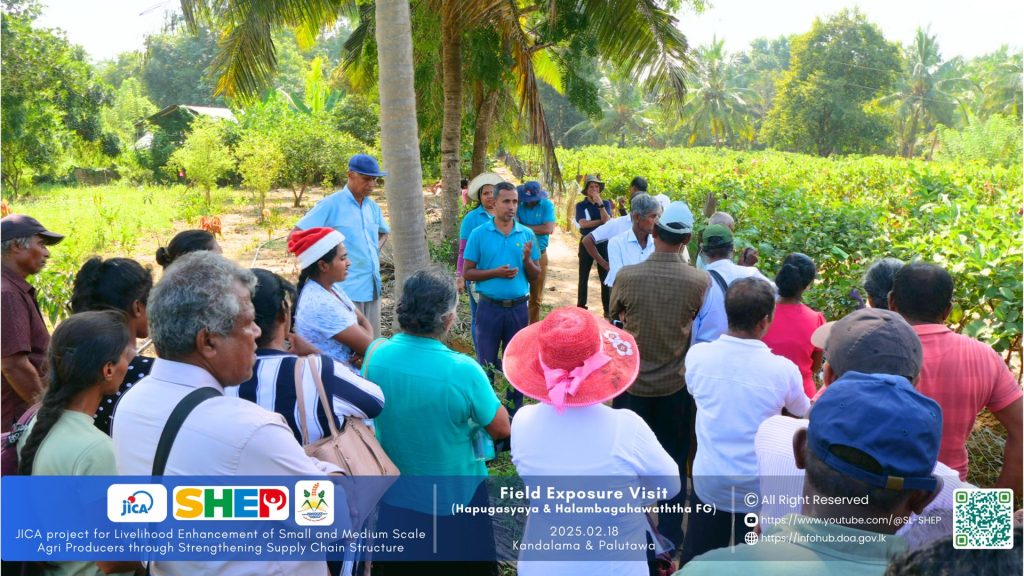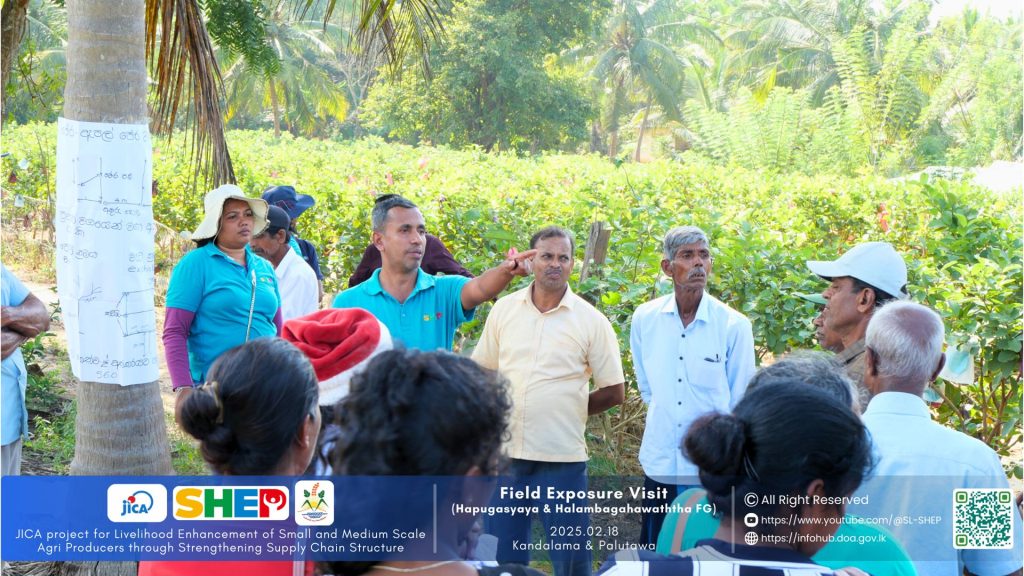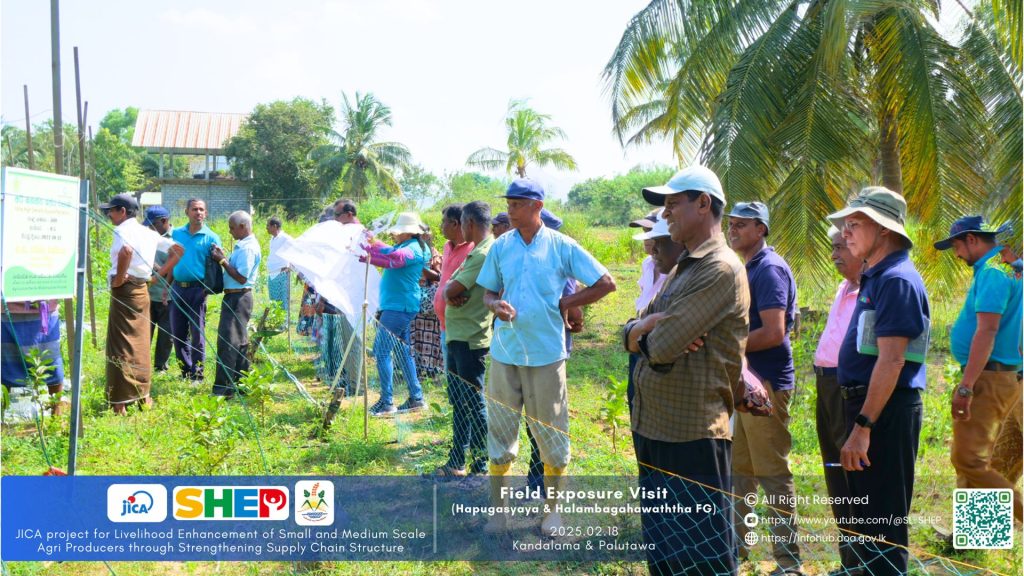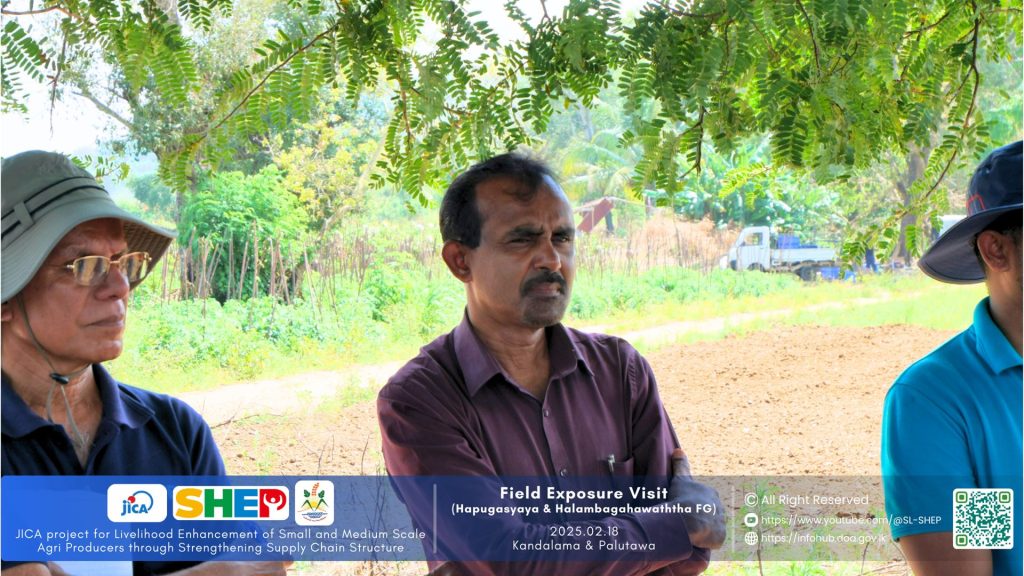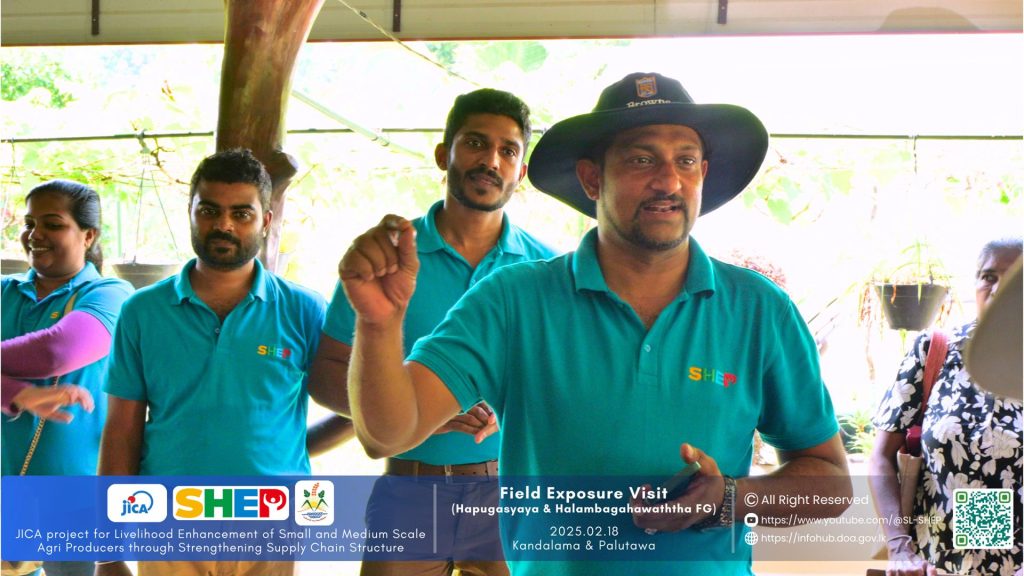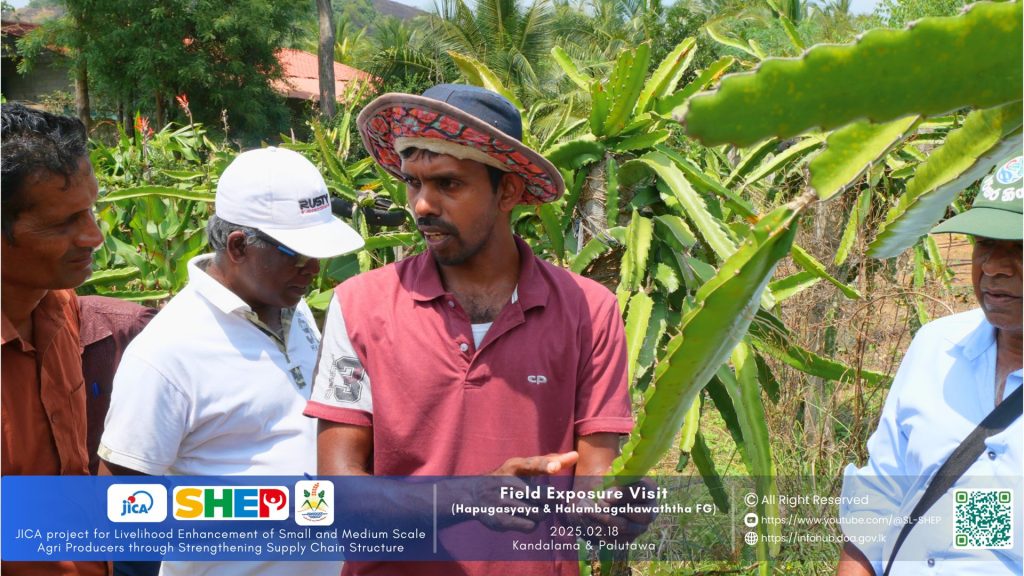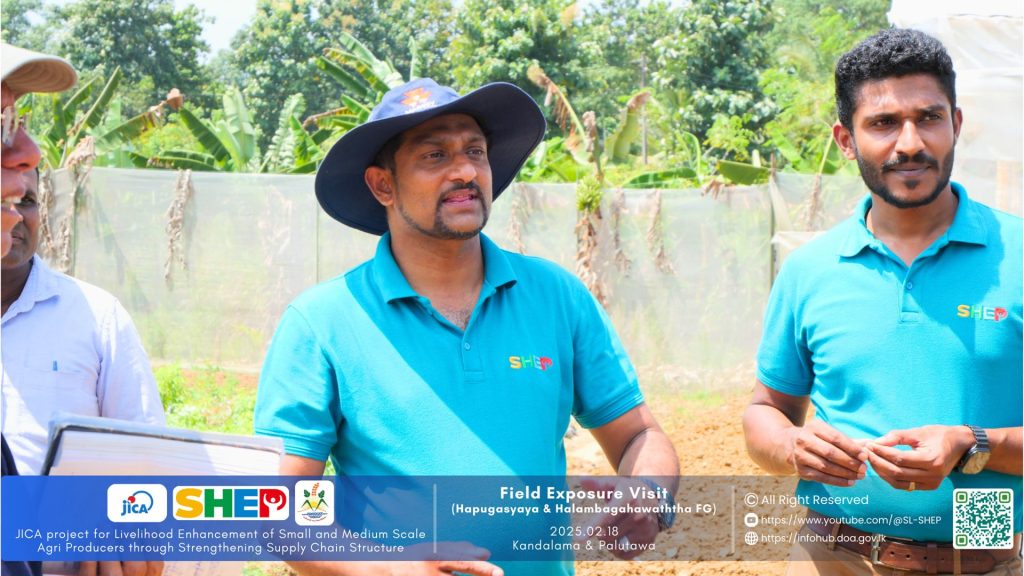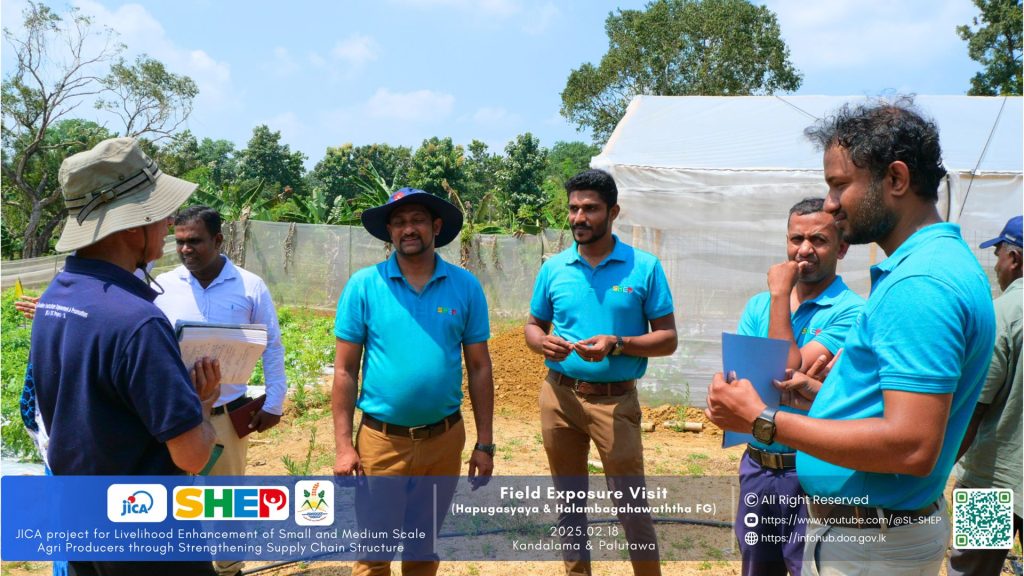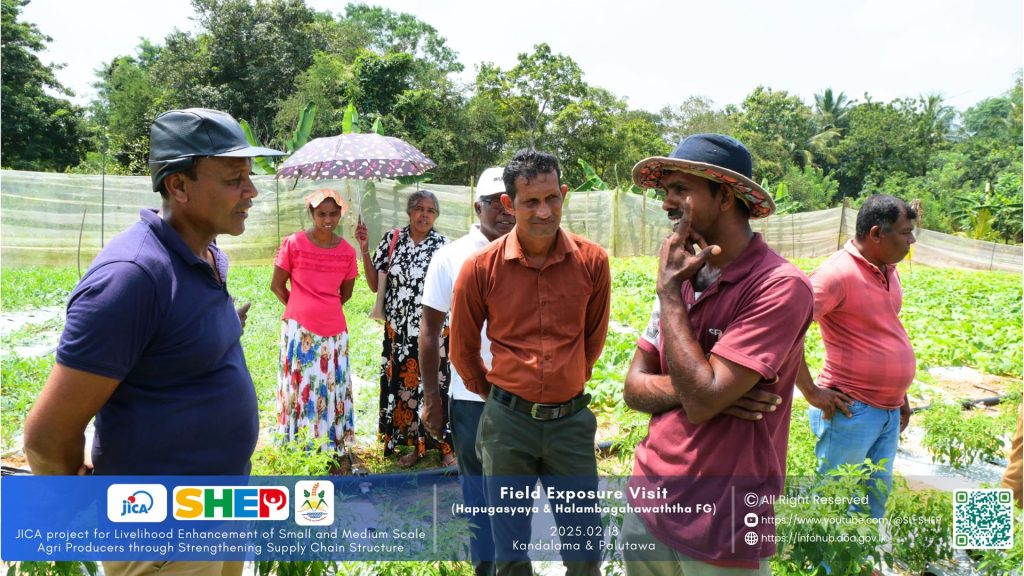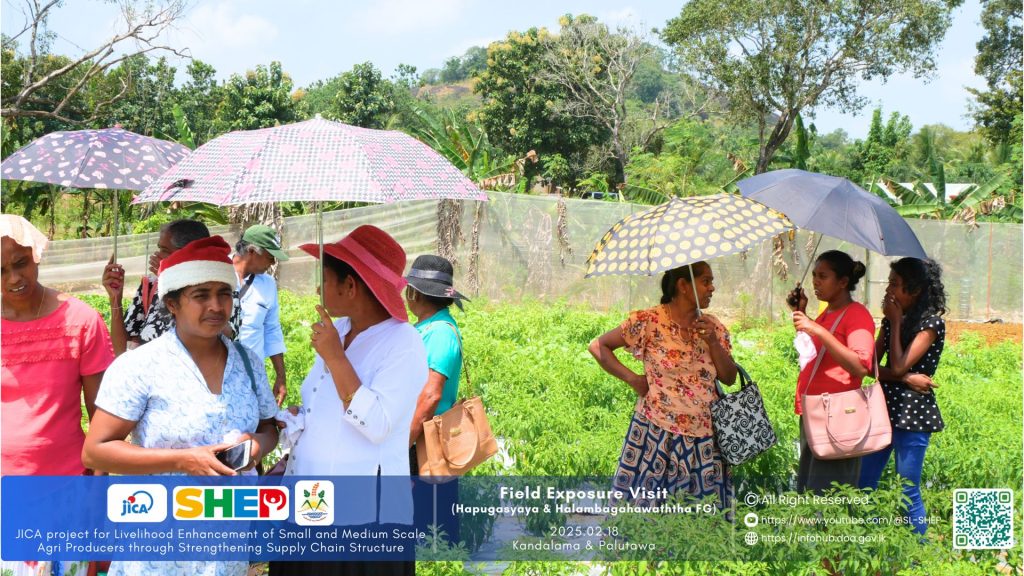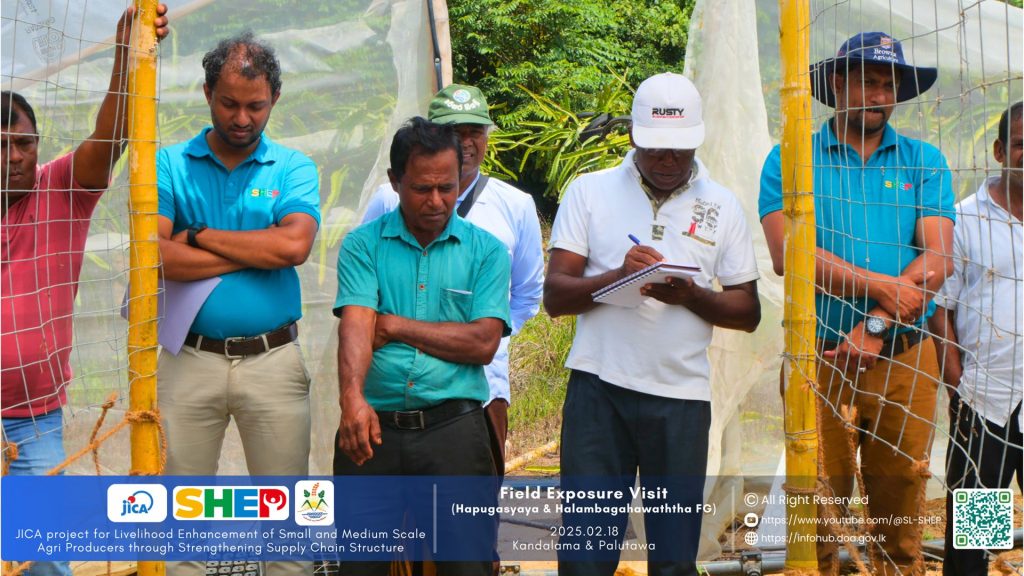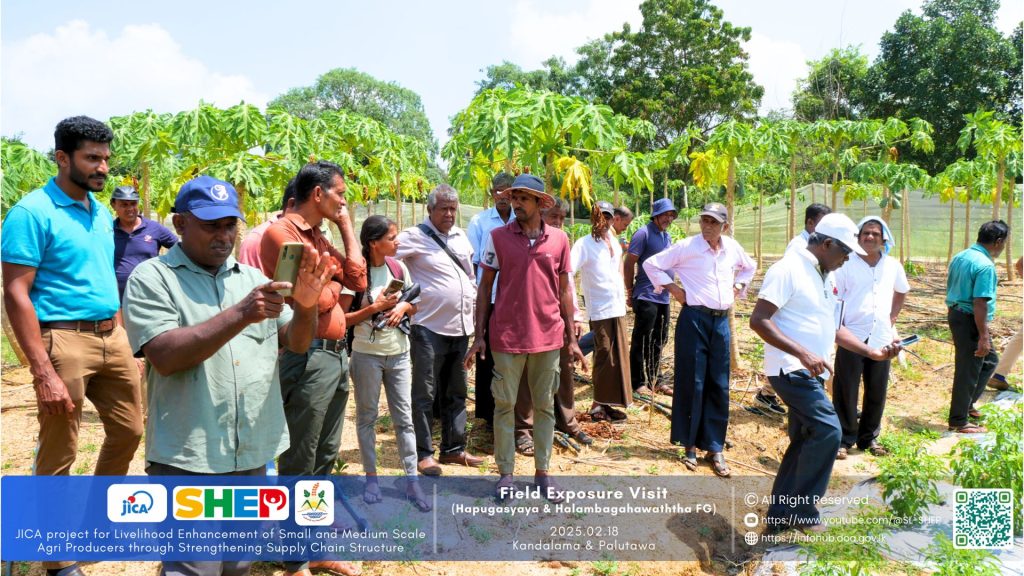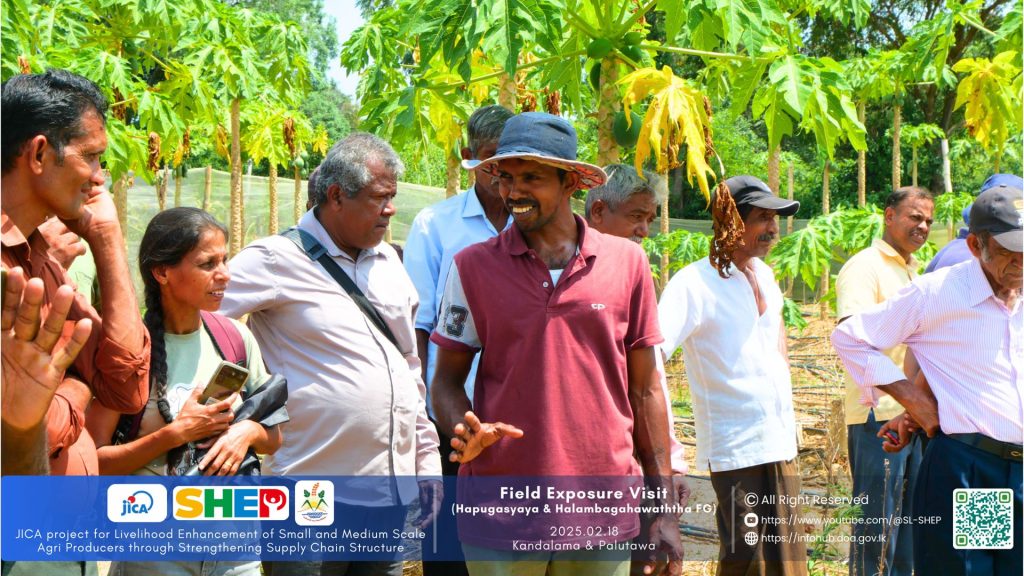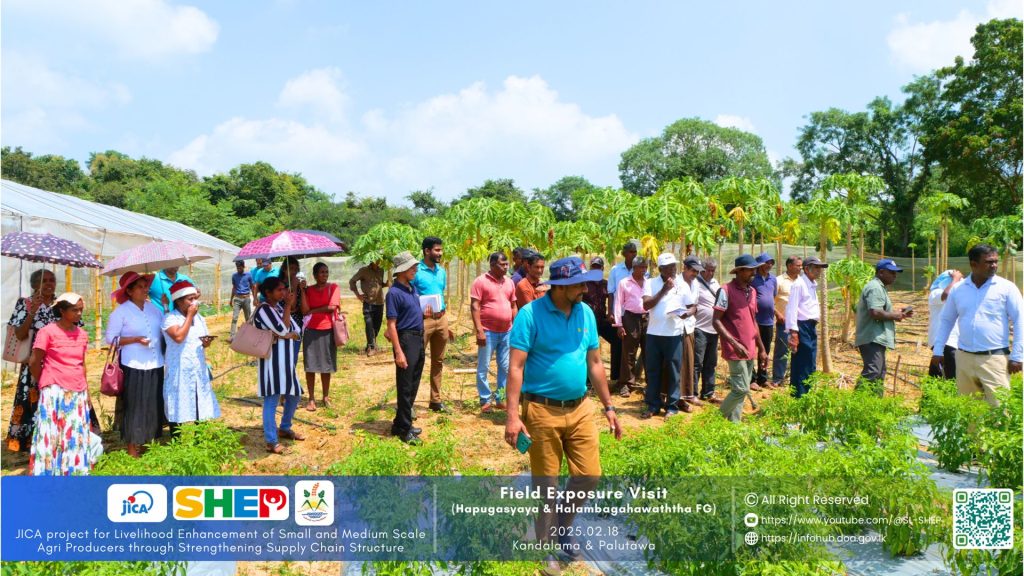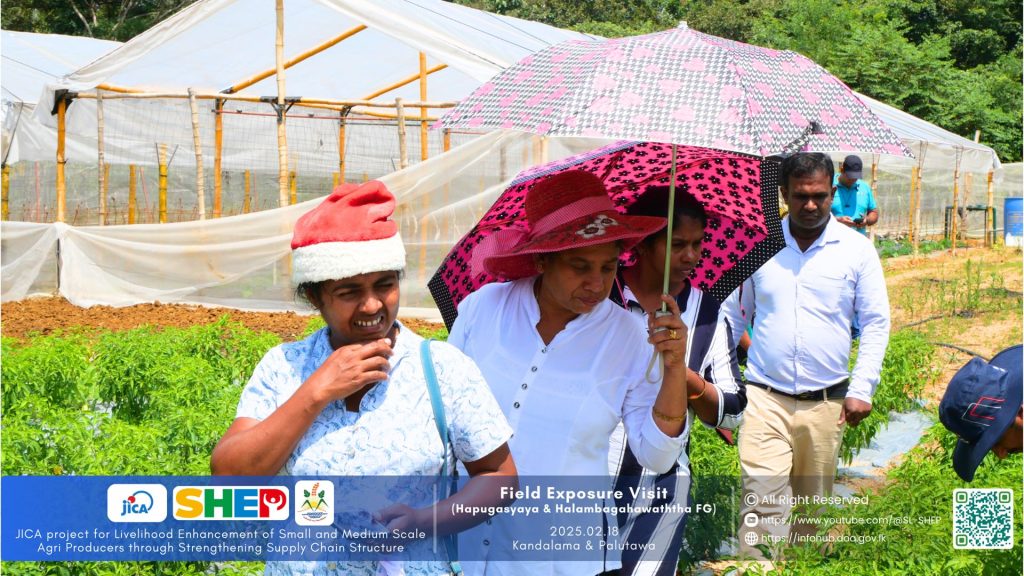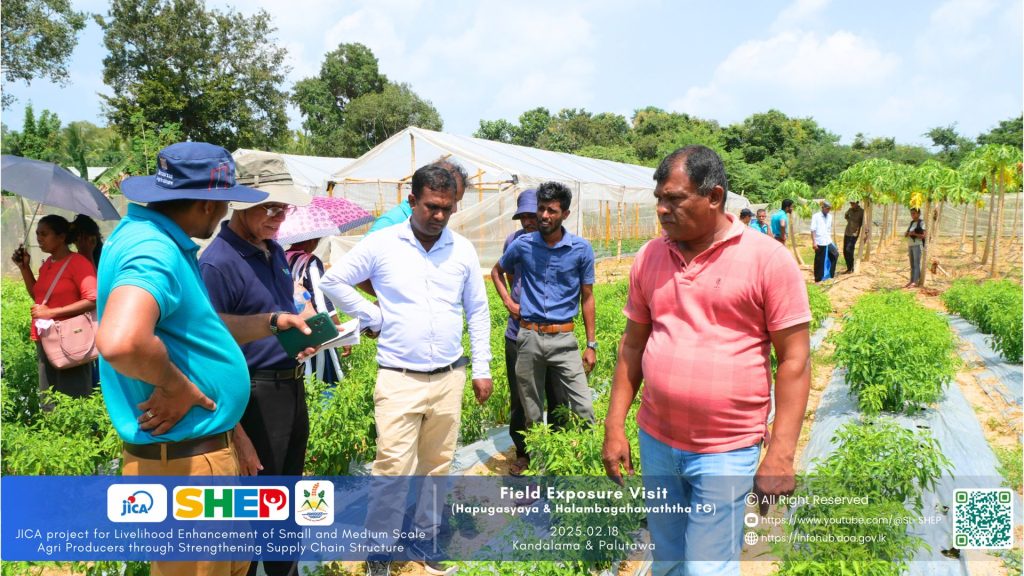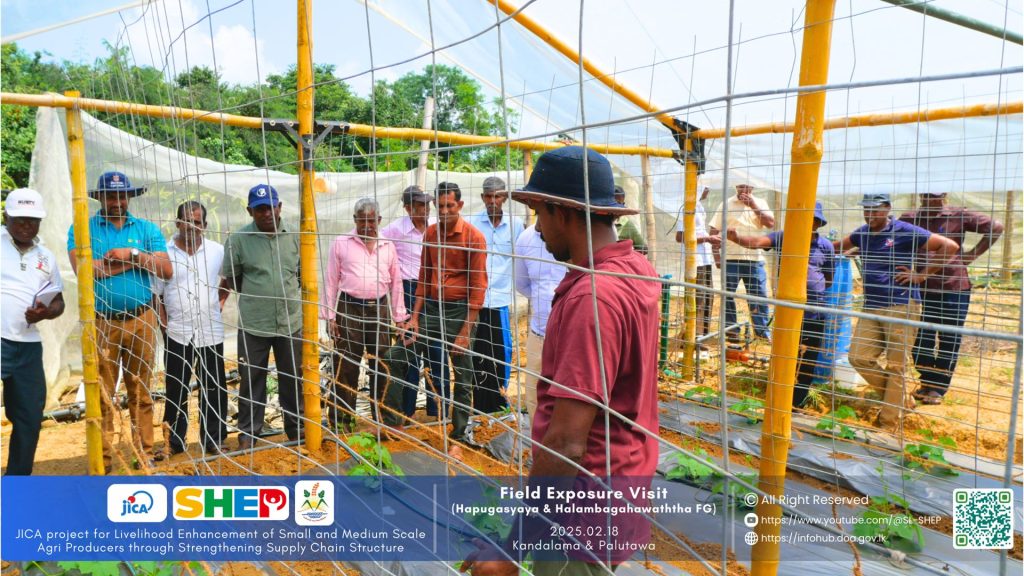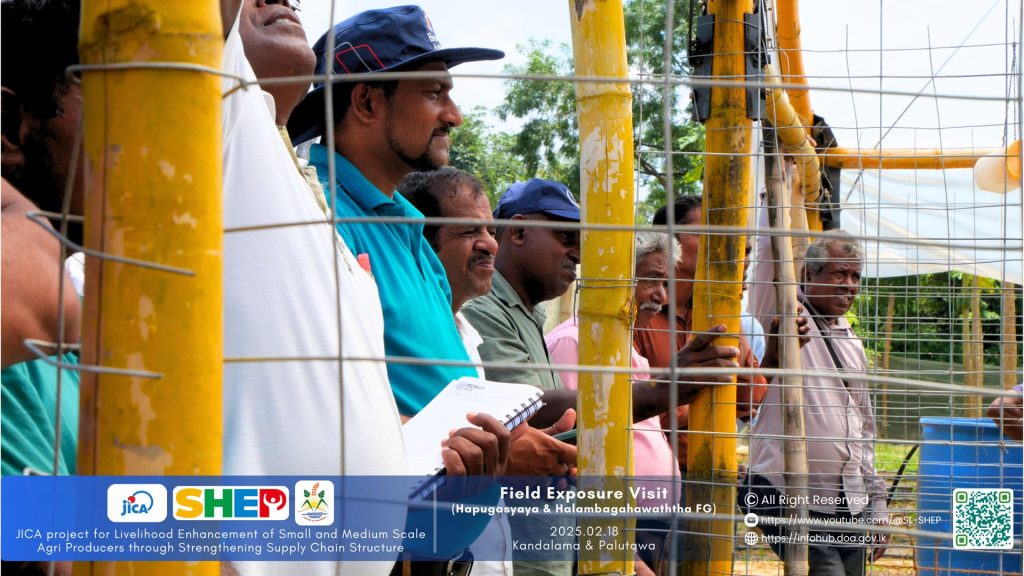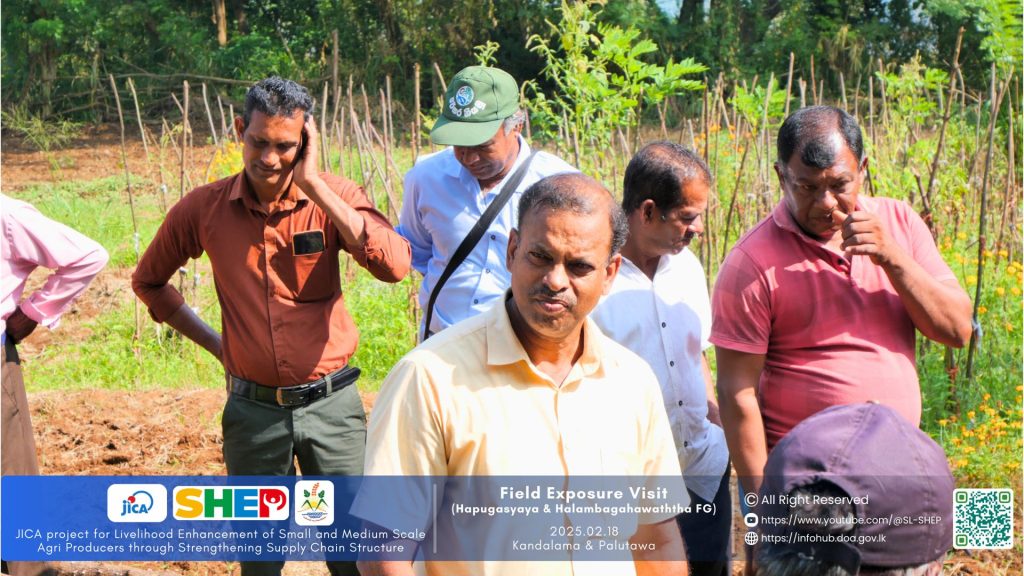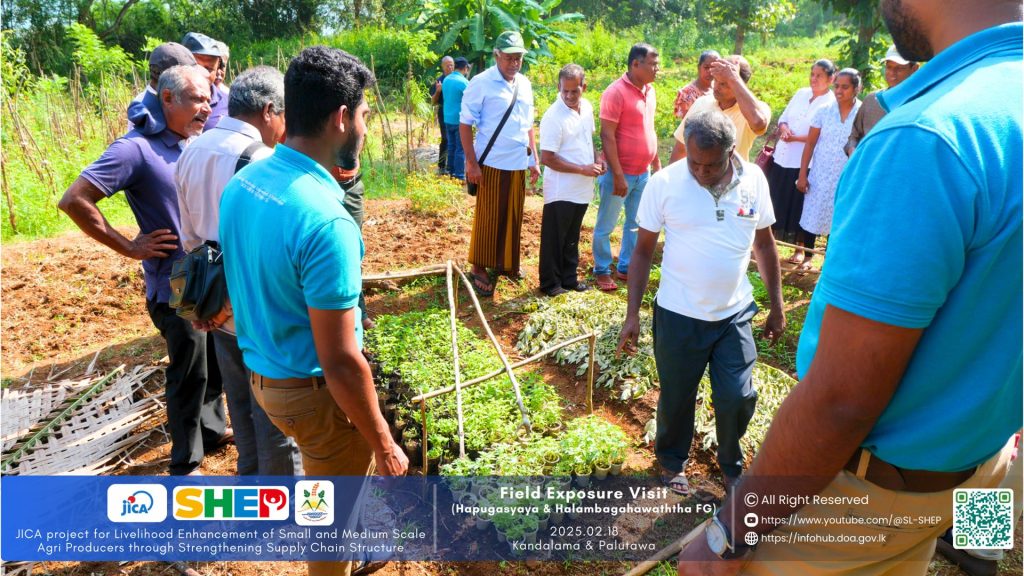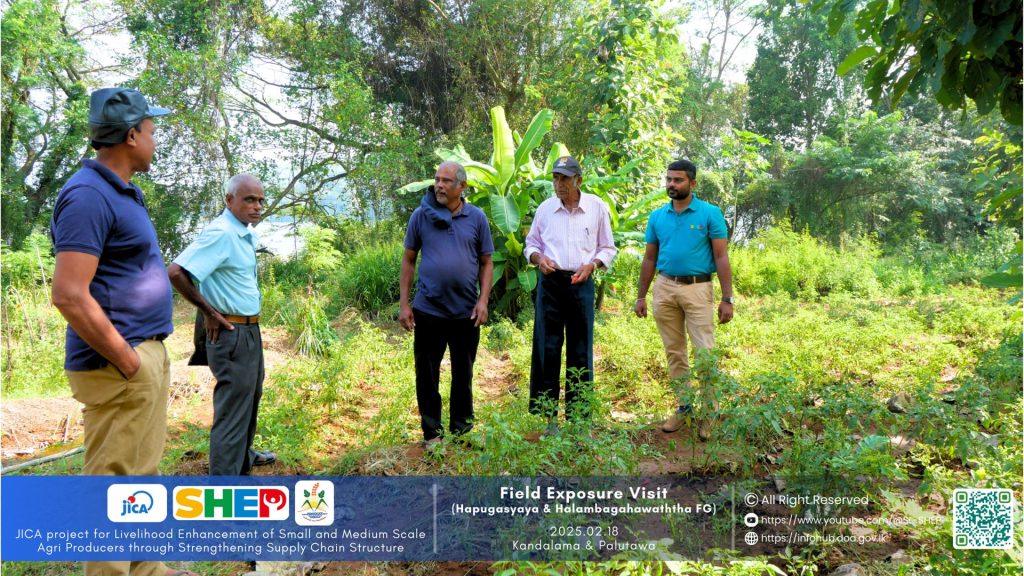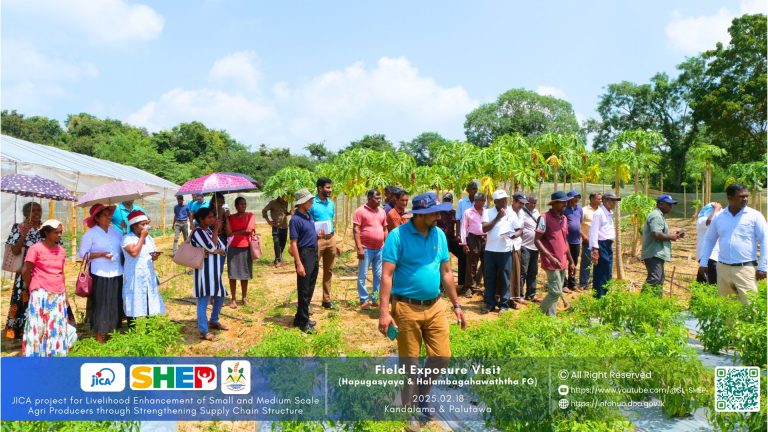Under the fourth step of the Smallholder Horticulture Empowerment and Promotion (SHEP) approach, which focuses on farmers acquiring essential skills, they gain new knowledge about the crops they have already selected.
Additionally, there is a high level of willingness among farmers to engage in this step. To facilitate this learning process, field training programs are organized based on farmers’ demands, and field exposure visits are conducted among farmer groups in the district to provide them with practical experience.
Through these exposure visits, farmers have the opportunity to exchange farming experiences and gain a deeper understanding of the latest agricultural technologies. Currently, field exposure visits for the second targeted group of farmers are being implemented. These visits serve as a valuable platform for farmers to learn about innovative farming techniques and best practices.
SHEP farmers participate in these field exposure visits with great enthusiasm, as they present a significant opportunity to acquire new knowledge. During these visits, they have the opportunity to observe the cultivation processes of farmers who utilize modern technological methods, effectively combining their prior experience gained from long-term farming activities with the new knowledge provided under the project.
These field exposure visits have proven to be highly effective in promoting positive attitudinal changes, knowledge-sharing among SHEP farmers, and strengthening relationships among farming groups within the district. It has been confirmed that these field exposure visits are an effective method for improving farmers’ agricultural knowledge and skills.
Through these exposure visits, discussions are held on ways to increase income while reducing production costs, and farmers’ awareness of planning crops based on market demands has also increased.
The initiatives carried out under the SHEP project, by promoting continuous learning and collaboration among farmers, will play a vital role in empowering them with modern knowledge and skills.
This will contribute significantly to increasing the income of small and medium-scale agricultural producers and further strengthening the agricultural sector in Sri Lanka.
